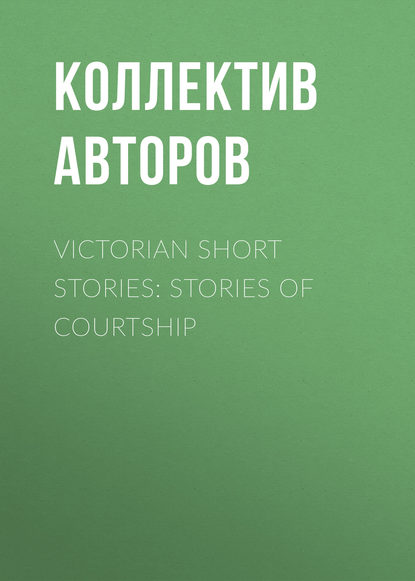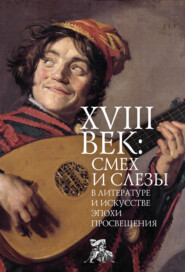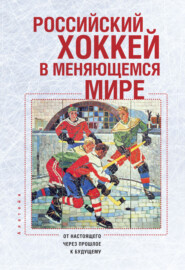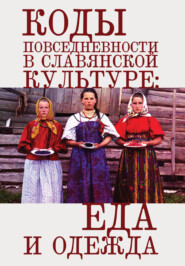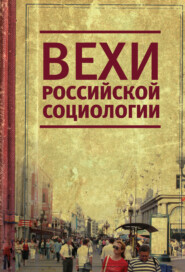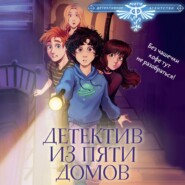По всем вопросам обращайтесь на: info@litportal.ru
(©) 2003-2024.
✖
Victorian Short Stories: Stories of Courtship
Настройки чтения
Размер шрифта
Высота строк
Поля
During the whole of that day she said no word to anyone of what had occurred. When she was once more at home she went about her household affairs as she had done on that day of his arrival. When she sat down to dinner with her father he observed nothing to make him think that she was unhappy, nor during the evening was there any expression in her face, or any tone in her voice, which excited his attention. On the following morning Captain Broughton called at the parsonage, and the servant-girl brought word to her mistress that he was in the parlour. But she would not see him. 'Laws miss, you ain't a quarrelled with your beau?' the poor girl said. 'No, not quarrelled,' she said; 'but give him that.' It was a scrap of paper containing a word or two in pencil. 'It is better that we should not meet again. God bless you.' And from that day to this, now more than ten years, they have never met.
'Papa,' she said to her father that afternoon, 'dear papa, do not be angry with me. It is all over between me and John Broughton. Dearest, you and I will not be separated.'
It would be useless here to tell how great was the old man's surprise and how true his sorrow. As the tale was told to him no cause was given for anger with anyone. Not a word was spoken against the suitor who had on that day returned to London with a full conviction that now at least he was relieved from his engagement. 'Patty, my darling child,' he said, 'may God grant that it be for the best!'
'It is for the best,' she answered stoutly. 'For this place I am fit; and I much doubt whether I am fit for any other.'
On that day she did not see Miss Le Smyrger, but on the following morning, knowing that Captain Broughton had gone off,—having heard the wheels of the carriage as they passed by the parsonage gate on his way to the station,—she walked up to the Colne.
'He has told you, I suppose?' said she.
'Yes,' said Miss Le Smyrger. 'And I will never see him again unless he asks your pardon on his knees. I have told him so. I would not even give him my hand as he went.'
'But why so, thou kindest one? The fault was mine more than his.'
'I understand. I have eyes in my head,' said the old maid. 'I have watched him for the last four or five days. If you could have kept the truth to yourself and bade him keep off from you, he would have been at your feet now, licking the dust from your shoes.'
'But, dear friend, I do not want a man to lick dust from my shoes.'
'Ah, you are a fool. You do not know the value of your own wealth.'
'True; I have been a fool. I was a fool to think that one coming from such a life as he has led could be happy with such as I am. I know the truth now. I have bought the lesson dearly—but perhaps not too dearly, seeing that it will never be forgotten.'
There was but little more said about the matter between our three friends at Oxney Colne. What, indeed, could be said? Miss Le Smyrger for a year or two still expected that her nephew would return and claim his bride; but he has never done so, nor has there been any correspondence between them. Patience Woolsworthy had learned her lesson dearly. She had given her whole heart to the man; and, though she so bore herself that no one was aware of the violence of the struggle, nevertheless the struggle within her bosom was very violent. She never told herself that she had done wrong; she never regretted her loss; but yet—yet!—the loss was very hard to bear. He also had loved her, but he was not capable of a love which could much injure his daily peace. Her daily peace was gone for many a day to come.
Her father is still living; but there is a curate now in the parish. In conjunction with him and with Miss Le Smyrger she spends her time in the concerns of the parish. In her own eyes she is a confirmed old maid; and such is my opinion also. The romance of her life was played out in that summer. She never sits now lonely on the hillside thinking how much she might do for one whom she really loved. But with a large heart she loves many, and, with no romance, she works hard to lighten the burdens of those she loves.
As for Captain Broughton, all the world knows that he did marry that great heiress with whom his name was once before connected, and that he is now a useful member of Parliament, working on committees three or four days a week with zeal that is indefatigable. Sometimes, not often, as he thinks of Patience Woolsworthy a smile comes across his face.
ANTHONY GARSTIN'S COURTSHIP
By Hubert Crackanthorpe
(Savoy, July 1896)
I
A stampede of huddled sheep, wildly scampering over the slaty shingle, emerged from the leaden mist that muffled the fell-top, and a shrill shepherd's whistle broke the damp stillness of the air. And presently a man's figure appeared, following the sheep down the hillside. He halted a moment to whistle curtly to his two dogs, who, laying back their ears, chased the sheep at top speed beyond the brow; then, his hands deep in his pockets, he strode vigorously forward. A streak of white smoke from a toiling train was creeping silently across the distance: the great, grey, desolate undulations of treeless country showed no other sign of life.
The sheep hurried in single file along a tiny track worn threadbare amid the brown, lumpy grass: and, as the man came round the mountain's shoulder, a narrow valley opened out beneath him—a scanty patchwork of green fields, and, here and there, a whitewashed farm, flanked by a dark cluster of sheltering trees.
The man walked with a loose, swinging gait. His figure was spare and angular: he wore a battered, black felt hat and clumsy, iron-bound boots: his clothes were dingy from long exposure to the weather. He had close-set, insignificant eyes, much wrinkled, and stubbly eyebrows streaked with grey. His mouth was close-shaven, and drawn by his abstraction into hard and taciturn lines; beneath his chin bristled an unkempt fringe of sandy-coloured hair.
When he reached the foot of the fell, the twilight was already blurring the distance. The sheep scurried, with a noisy rustling, across a flat, swampy stretch, over-grown with rushes, while the dogs headed them towards a gap in a low, ragged wall built of loosely-heaped boulders. The man swung the gate to after them, and waited, whistling peremptorily, recalling the dogs. A moment later, the animals reappeared, cringing as they crawled through the bars of the gate. He kicked out at them contemptuously, and mounting a stone stile a few yards further up the road, dropped into a narrow lane.
Presently, as he passed a row of lighted windows, he heard a voice call to him. He stopped, and perceived a crooked, white-bearded figure, wearing clerical clothes, standing in the garden gateway.
'Good-evening, Anthony. A raw evening this.'
'Ay, Mr. Blencarn, it is a bit frittish,' he answered. 'I've jest bin gittin' a few lambs off t'fell. I hope ye're keepin' fairly, an' Miss Rosa too.' He spoke briefly, with a loud, spontaneous cordiality.
'Thank ye, Anthony, thank ye. Rosa's down at the church, playing over the hymns for tomorrow. How's Mrs. Garstin?'
'Nicely, thank ye, Mr. Blencarn. She's wonderful active, is mother.'
'Well, good night to ye, Anthony,' said the old man, clicking the gate.
'Good night, Mr. Blencarn,' he called back.
A few minutes later the twinkling lights of the village came in sight, and from within the sombre form of the square-towered church, looming by the roadside, the slow, solemn strains of the organ floated out on the evening air. Anthony lightened his tread: then paused, listening; but, presently, becoming aware that a man stood, listening also, on the bridge some few yards distant, he moved forward again. Slackening his pace, as he approached, he eyed the figure keenly; but the man paid no heed to him, remaining, with his back turned, gazing over the parapet into the dark, gurgling stream.
Anthony trudged along the empty village street, past the gleaming squares of ruddy gold, starting on either side out of the darkness. Now and then he looked furtively backwards. The straight open road lay behind him, glimmering wanly: the organ seemed to have ceased: the figure on the bridge had left the parapet, and appeared to be moving away towards the church. Anthony halted, watching it till it had disappeared into the blackness beneath the churchyard trees. Then, after a moment's hesitation, he left the road, and mounted an upland meadow towards his mother's farm.
It was a bare, oblong house. In front, a whitewashed porch, and a narrow garden-plot, enclosed by a low iron railing, were dimly discernible: behind, the steep fell-side loomed like a monstrous, mysterious curtain hung across the night. He passed round the back into the twilight of a wide yard, cobbled and partially grass-grown, vaguely flanked by the shadowy outlines of long, low farm-buildings. All was wrapped in darkness: somewhere overhead a bat fluttered, darting its puny scream.
Inside, a blazing peat-fire scattered capering shadows across the smooth, stone floor, flickered among the dim rows of hams suspended from the ceiling and on the panelled cupboards of dark, glistening oak. A servant-girl, spreading the cloth for supper, clattered her clogs in and out of the kitchen: old Mrs. Garstin was stooping before the hearth, tremulously turning some girdle-cakes that lay roasting in the embers.
At the sound of Anthony's heavy tread in the passage, she rose, glancing sharply at the clock above the chimney-piece. She was a heavy-built woman, upright, stalwart almost, despite her years. Her face was gaunt and sallow; deep wrinkles accentuated the hardness of her features. She wore a black widow's cap above her iron-grey hair, gold-rimmed spectacles, and a soiled, chequered apron.
'Ye're varra late, Tony,' she remarked querulously.
He unloosened his woollen neckerchief, and when he had hung it methodically with his hat behind the door, answered:
''Twas terrible thick on t' fell-top, an' them two bitches be that senseless.'
She caught his sleeve, and, through her spectacles, suspiciously scrutinized his face.
'Ye did na meet wi' Rosa Blencarn?'
'Nay, she was in church, hymn-playin', wi' Luke Stock hangin' roond door,' he retorted bitterly, rebuffing her with rough impatience.
She moved away, nodding sententiously to herself. They began supper: neither spoke: Anthony sat slowly stirring his tea, and staring moodily into the flames: the bacon on his plate lay untouched. From time to time his mother, laying down her knife and fork, looked across at him in unconcealed asperity, pursing her wide, ungainly mouth. At last, abruptly setting down her cup, she broke out:
'I wonder ye hav'na mare pride, Tony. For hoo lang are ye goin' t' continue settin' mopin' and broodin' like a seck sheep? Ye'll jest mak yesself ill, an' then I reckon what ye'll prove satisfied. Ay, but I wonder ye hav'na more pride.'
But he made no answer, remaining unmoved, as if he had not heard.
Presently, half to himself, without raising his eyes, he murmured:
'Luke be goin' South, Monday.'
'Well, ye canna tak' oop wi' his leavin's anyways. It hasna coom't that, has it? Ye doan't intend settin' all t' parish a laughin' at ye a second occasion?'
He flushed dully, and bending over his plate, mechanically began his supper.
'Wa dang it,' he broke out a minute later, 'd'ye think I heed the cacklin' o' fifty parishes? Na, not I,' and, with a short, grim laugh, he brought his fist down heavily on the oak table.
'Ye're daft, Tony,' the old woman blurted.





